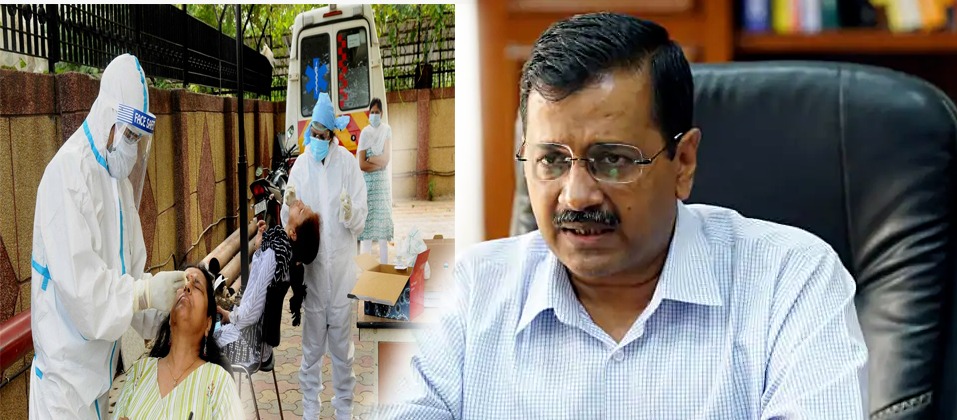As per the latest reports, the Delhi government is preparing a strategy to delineate all containment zones by 26 June 2020. Along with this, it is planning to screen every house in the national capital till 6 July 2020.
A new strategy is being made to tackle the pandemic, and its current COVID response plan will also be revised to cope up with the surge in COVID positive cases in the last few days.
On Tuesday 23 June 2020, the national capital saw the biggest single-day spike in cases of coronavirus after it crossed the 66,000 mark. Now, Delhi stands at the second position in the country only behind Maharashtra in terms of the total number of cases.
As a part of the new Delhi COVID Response Plan, there would be a complete survey of all containment zones by 30 June 2020, and thereafter an extensive survey of the entire capital by 6 July 2020. A serological survey will also take place in Delhi between 27 June and 10 July, covering around 20,000 residents, whose samples would be tested to assess the extent of the spread of infection. This survey would be done in collaboration with the National Centre for Disease Control (NCDC), the Delhi government said on Wednesday.
According to a Central government report, Delhi accounted for 24 percent of all new cases, and 25 percent of COVID-19 deaths in the last two days. Delhi reported over 3,000 fresh cases for the third consecutive day. On Saturday 20 June 2020, the national capital witnessed the highest single-day spike with 3,630 cases.
The revised COVID response plan would include the following features strengthening of the surveillance team at the district level; reviewing and improvement of containment zone strategies; strengthening of contact tracing mechanisms; increasing use of the Aarogya Setu app and ITIHAS system for response, etc.
The government will strengthen its surveillance team which will now comprise of Deputy Commissioner of Police, Municipal DC, District Surveillance Officers (DSO), IT professionals to monitor Aarogya Setu as its members and epidemiologists. At present, District Magistrate is the head of the District Task Force.
The existing containment zones will be re-evaluated by the government and a revised containment zoning plan will be prepared, which will have an adequate number of buffer zones as per the guidelines of the Union Ministry of Health. Once a zone is declared as a container zone, it will have to strictly follow the rules and active case search will be done inside the containment zone. There will be a sufficient number of buffer zones around the container zone, the Delhi government said.
As per the plan, police personnel will be deployed to ensure that people maintain proper social distancing. Also, more teams will be created for contact searching, testing, and isolating patients.
All symptomatic and asymptomatic high-risk contacts have to be tested between the fifth and tenth day of contact, the guidelines state. In addition to this, CCTVs and drones will be used to monitor movements inside containment zones in Delhi, and those violating the norms will be penalized.








